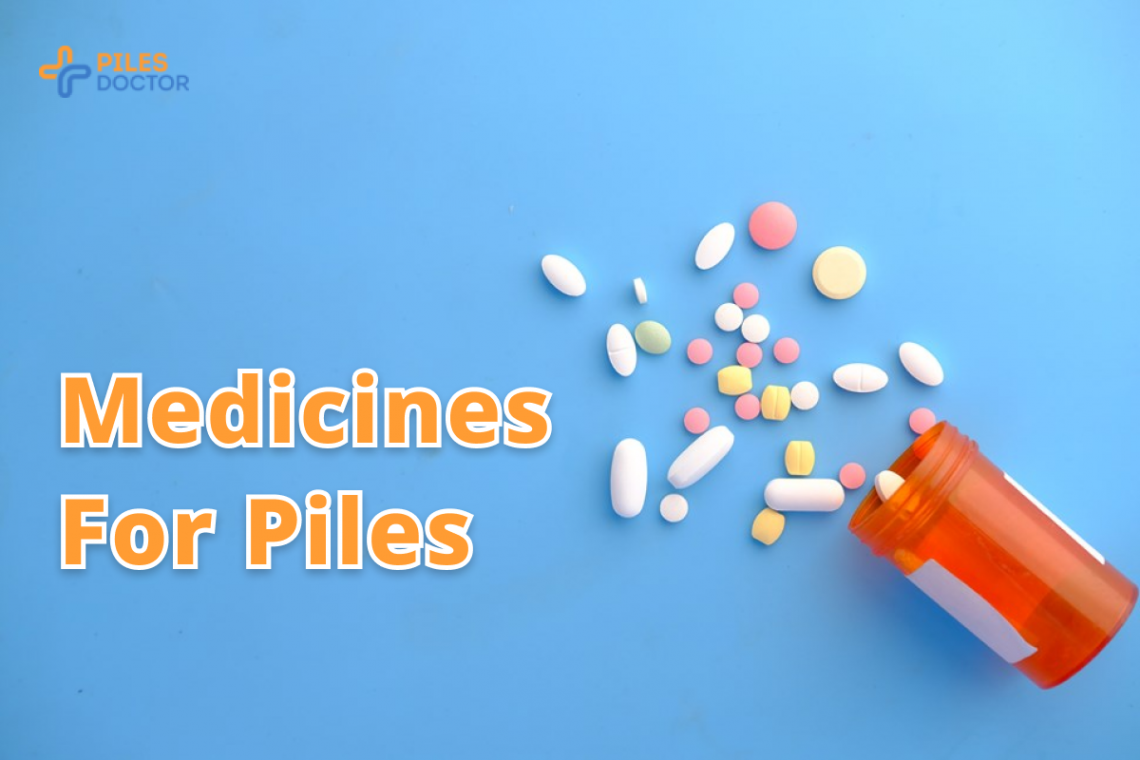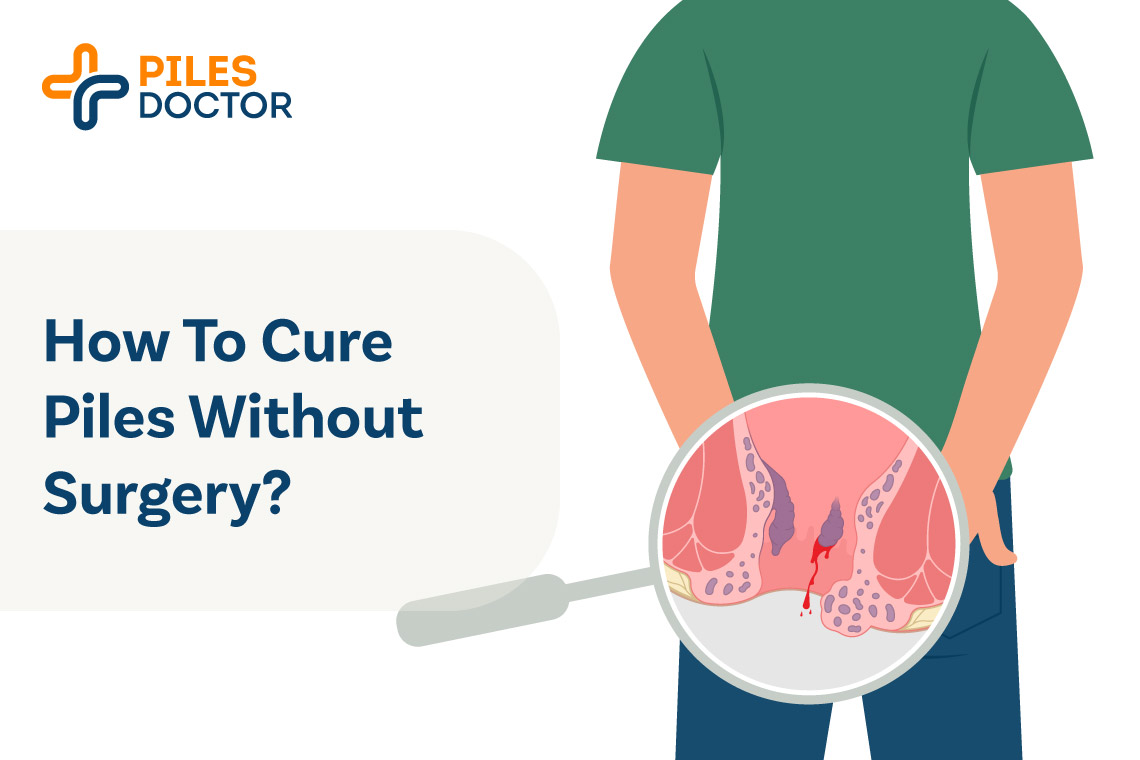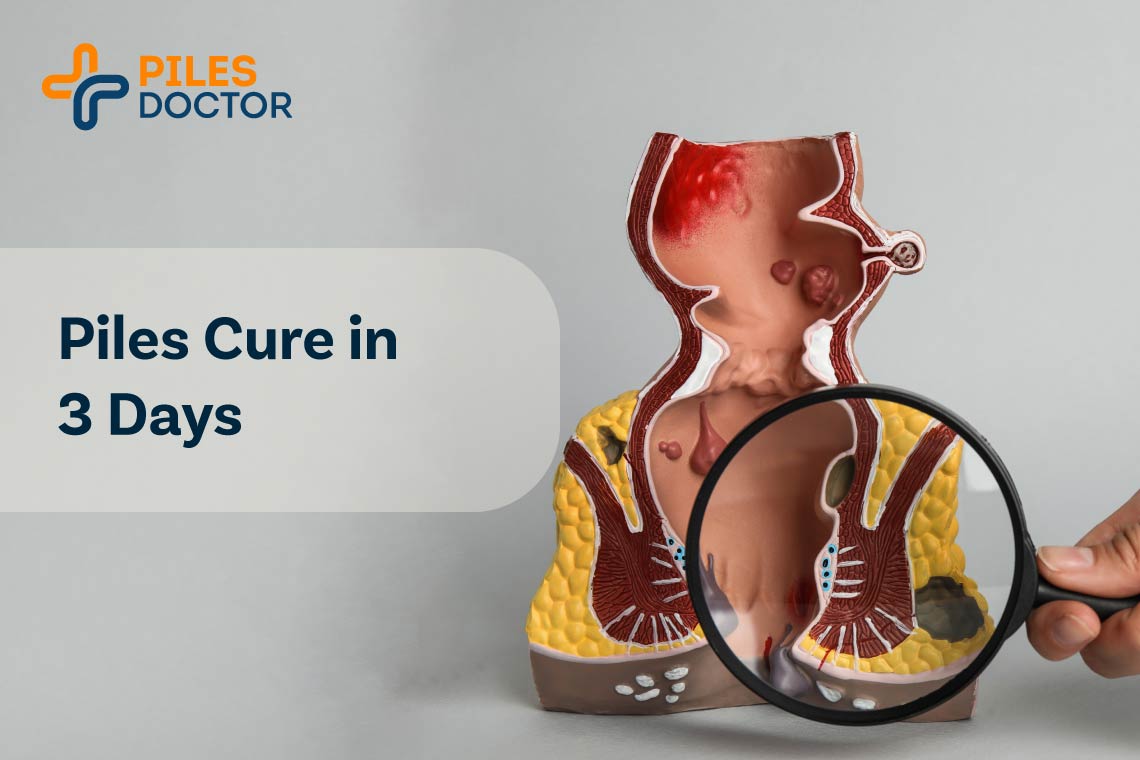Usually, more than 80% of people seek medical attention when they face any health issue multiple times. For piles, more than 60% of people choose home remedies to get relief from the piles. Home remedies are often considered the most preferred option.
However, many people also turn to allopathic medicines to get instant relief from the discomfort and pain associated with piles. Allopathy is a type of medicine that is commonly used and is believed to provide quick relief for hemorrhoids. It helps in treating, eliminating, and preventing further infection when symptoms first appear.
In this blog, we will provide information on various allopathic, ayurvedic and homeopathic medicines that can help cure hemorrhoids. Allopathy can work wonders when taken in the right dosage and at the right time, as prescribed by an experienced proctologist.
Best Medicine for Piles
Best Allopathic Medicine for Piles in India
- Daflon 500 mg for piles: Daflon is one of the best medicine for piles. It contains a substance called diosmin, which comes from plants and can shrink hemorrhoids. This medicine can relieve many symptoms of piles. The diosmin in the medicine stops the production of chemicals that cause inflammation in the veins around the anus. It also helps improve blood flow to the veins because it has antioxidant properties. It is one of the best tablets for piles.
- Liquid Paraffin for Piles: Liquid paraffin is a commonly used treatment for piles. It works by lubricating the anal passage and making bowel movements less painful. Paraffin is usually taken orally, and patients are advised to follow the dosage instructions carefully. While it can provide relief for some individuals, it is important to consult a doctor before starting any new treatment regimen.
- Lidocaine-hydrocortisone cream for piles: This cream is prescribed by the doctor for painful hemorrhoids. It helps with symptoms like pain, itching, swelling, and discomfort. The cream has two main ingredients: lidocaine and hydrocortisone. Lidocaine numbs the anal area temporarily, like a painkiller. Hydrocortisone is a type of medicine that reduces redness, itching, and swelling. It is one of the best painkillers for piles. You should use this cream twice a day after going to the bathroom. It’s important to use it every day as prescribed by the doctor to get the best results. After using the cream, remember to wash your hands. If you want to stop using the cream, talk to your doctor first and they will guide you on how to do it gradually.
- Lignocaine 2% gel for piles: When you have hemorrhoids, it can be very painful to go to the bathroom. This gel can help reduce or even eliminate the pain when you pass stool. All you have to do is gently insert the gel tube into your anus and squeeze a little gel inside about 15 minutes before using the toilet. You can use this gel as long as you have hemorrhoids, but not afterward. You can buy this gel easily at drug stores. The gel numbs the area where you apply it, for a few minutes. It is the best painkiller for piles.
- Lactulose for piles: This medicine has been around for about 40 years, and is chronic constipation – a common cause of hemorrhoids. It works by bringing water into the intestines, making the stools softer so that you can pass them easily.
Usually, this medicine needs to be taken once a day, but your doctor may suggest a different dosage based on how severe your condition is. You will start to see the benefits within 24 to 48 hours.If you can’t take paraffin tablets, you can use Lactulose syrup instead, which works in the same way. You need to take 20 ml of it before going to bed. If your constipation is very severe, you can also take 20 ml in the morning and 20 ml in the evening. Lactulose is sweet, so it’s not recommended for people with diabetes.
Ayurvedic Medicines
- Touch-me-not plant: Touch me not plant, also known as Mimosa pudica, has been used in Ayurvedic medicine as the best medicine for piles. The plant’s leaves and roots contain compounds that possess anti-inflammatory and analgesic properties, which can help reduce the swelling and pain associated with this condition. Additionally, the touch-me-not plant has been used to promote bowel movements and relieve constipation, which are contributing factors to piles. It is recommended to consult with a healthcare professional before using Touch-me-not plant as a treatment for piles.
- Triphala: Triphala is one of the best medicine for piles. It is a combination of three fruits, namely amla, haritaki, and bibhitaki. Triphala is believed to help in digestion and promote healthy bowel movements, which can alleviate symptoms of piles. It also has anti-inflammatory properties that could reduce swelling and pain associated with piles.
- Guggul: Guggul is a traditional Ayurvedic medicine that has been used for centuries to treat various health conditions, including piles. It is derived from the resin of the Commiphora Mukul tree and is known for its anti-inflammatory and analgesic properties. Guggul can help reduce swelling and pain associated with piles and is often used in combination with other Ayurvedic remedies for maximum effectiveness.
- Turmeric: Turmeric has been used in Ayurvedic medicine for centuries to treat various health conditions, including piles. It contains a compound called curcumin, which has anti-inflammatory and antioxidant properties. Curcumin can help reduce pain, inflammation, and swelling associated with piles. Turmeric can be consumed as a supplement or mixed with warm milk or water for easy ingestion. However, it is important to consult with a healthcare practitioner before using turmeric for medicinal purposes.
- Chirabilwadi Kashaya: Chirabilwadi Kashaya is a well-known ayurvedic medicine that is often used to treat piles. This herbal remedy is made from a blend of natural ingredients and is believed to be effective at reducing inflammation, relieving pain, and promoting healing. Many people find Chirabilwadi Kashaya to be a safe and effective alternative to traditional Western treatments for this common condition.
Homeopathic Medicines
- Aloe socotrina: Aloe socotrina is a popular homeopathic remedy used to treat piles, also known as hemorrhoids. This medicine is made from the sap of the Aloe vera plant and is believed to help reduce inflammation and pain associated with piles. It is commonly recommended for those experiencing symptoms such as bleeding, itching, and burning sensations. As with any homeopathic remedy, it is important to consult with a licensed practitioner before use.
- Nux vomica: Nux vomica is a popular homeopathic medicine for piles. It is derived from the seeds of the strychnine tree and is widely used for its ability to reduce inflammation and pain associated with piles. This remedy is often recommended for individuals who suffer from constipation, which can contribute to the development of piles. Nux vomica is available in various forms, including tablets, powders, and tinctures.
- Hamamelis: Hamamelis is a popular homeopathic medicine for treating piles. It is derived from the leaves and bark of the Witch Hazel plant. It is believed to reduce bleeding, swelling, and pain associated with piles. Hamamelis can be found in various forms such as tablets, ointments, and creams. Consult a homeopathic practitioner before using Hamamelis for piles.
- Ratanhia: Ratanhia is a commonly used homeopathic remedy for piles. It is believed to help alleviate symptoms such as bleeding, burning, and itching. This medication is made from the root of the Ratanhia plant and is available in various forms, including tablets and creams. It is important to consult a doctor before using Ratanhia or any other homeopathic medicine for piles.
- Ignatia: Ignatia is a popular homeopathic medicine for treating piles. It is made from the seeds of a tree called Ignatia amara, which is native to the Philippines. Ignatia is believed to help reduce the swelling and inflammation associated with piles, as well as relieve pain and discomfort. It is typically taken in a diluted form, and can be found in various homeopathic remedies.
Do Allopathic Medicines Treat Piles Permanently?
Allopathic medicines are commonly used to treat piles, but the question is, do they treat piles permanently?
The answer is that allopathic piles medicines can help manage its symptoms, but they may not necessarily cure the condition permanently.
The primary goal of allopathic medicines for piles is to reduce the swelling and inflammation in the affected area, relieve pain and discomfort, and prevent bleeding and itching. Some common allopathic medicines used to treat piles include pain relievers, anti-inflammatory drugs, stool softeners, and topical creams and ointments.
While these medicines can provide relief from the symptoms of piles, they may not address the underlying cause of the condition.
In many cases, the root cause of piles is related to lifestyle factors such as diet, exercise, and hygiene. Therefore, making lifestyle changes and adopting healthy habits may be necessary to prevent the recurrence of piles.
Other Ways to Cure Piles
In addition to the medical treatment, there are several natural remedies that can help alleviate piles symptoms. These include regular exercise, drinking plenty of water, consuming foods rich in fiber, and avoiding spicy and oily foods. Sitz baths, which involve soaking the affected area in warm water, can also provide relief.
Read More – Food for Piles
However, it is important to note that these remedies may not offer a permanent solution to piles While piles medicines can provide temporary relief, laser surgery, also known as hemorrhoidectomy, is considered the best option for treating piles.
Overall, incorporating natural remedies into your lifestyle can help alleviate piles symptoms, but consulting an experienced proctologist for proper diagnosis and treatment is crucial for long-term relief.




